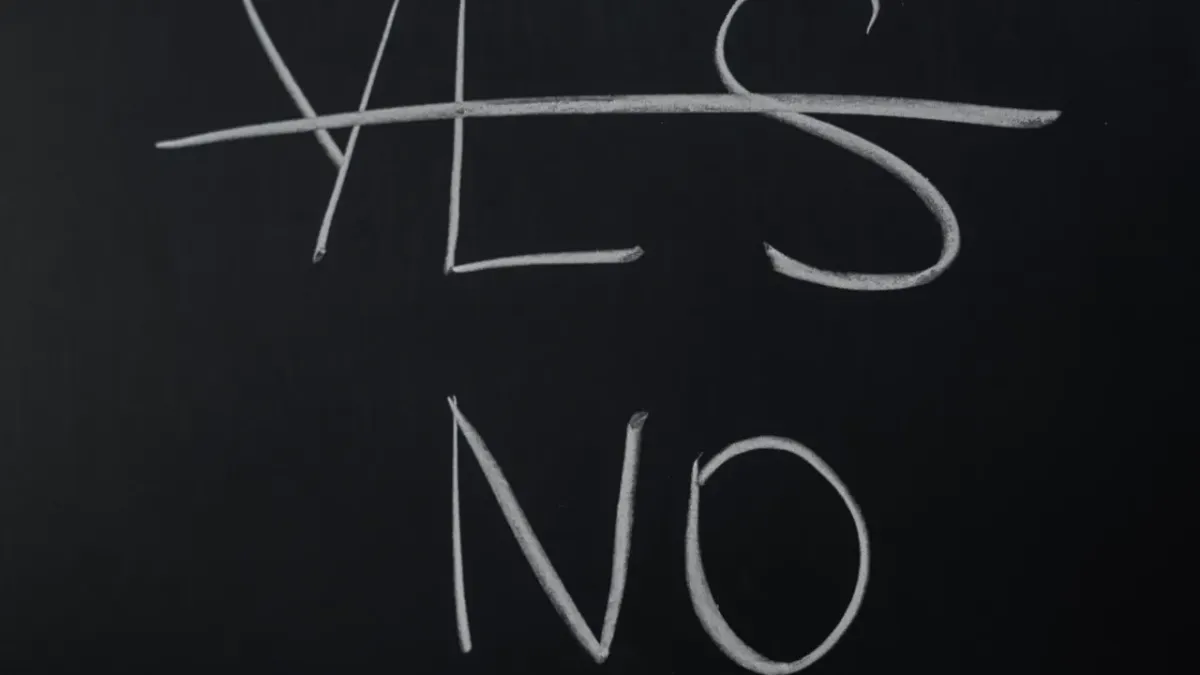
The Power Of "No"
Many of my coaching clients report difficulty with using the word “no”.
Sometimes it’s because they have trouble hearing it and other times it’s because they have trouble saying it.
Does this sound familiar?
I have reflected on the possibility that these clients find me because I myself have struggled with the word “no” and still do sometimes. As it turns out, I score very high on the psychometric scale for agreeableness.
Agreeableness is one of the big five personality traits that can be universally and reliably measured across time and across cultures. Agreeable people tend to get along well with others and can be supportive, kind, generous and even compromising. Agreeable types tend to be people pleasers and have difficulty saying “no” to requests. A remarkable finding is the inverse correlation between agreeableness and success— that is, the more agreeable you are, the less likely you are to be successful.
Agreeable types are generally unsuccessful because they have trouble knowing what they want. When asked what they want, they will often defer to others and respond with “whatever you like”, or, “I’m not sure”.
Do you know people like this? Is this you?
When I discovered that I was highly agreeable and that it was impeding my success, I made a conscious effort to become less agreeable. That is, I began to say “no” to more things. I lost one friendship almost immediately.
Agreeable types will say “yes” to requests even when they are authentically a “no”. This has been a habit of mine for decades. Over the last five years I’ve become more inclined to say “no” when it’s my authentic position, and it’s led to a marked increase in me attaining success across several life dimensions including career, finances, health and relationships.
It’s this simple—the things you say “no“ to leave more room for you to say “yes” to the things that you really want. For example, over the last few years I’ve been saying “no” to alcohol, coffee, television, overeating, laziness, partying too much, unreasonable requests, narcissists and freeloaders. This has given me more space to say “yes” to pilates, the gym, eating organic, early nights, weight loss, creative projects, self-care and real friends.
In some cases, it’s saying “no” to yourself that is needed. At other times, it’s about saying “no” to others. With my agreeable clients who report that they often say “yes” when they are authentically a “no”, I offer them this advice:
You must catch yourself about to say “yes” and then say “no” instead. It’s best you do not offer an explanation for why you said no, simply decline the request. The next step is to sit with what comes up for you emotionally. There will be some feeling or story that you want to avoid, for example “I feel guilty for being unkind” or “people won’t like me if I say no”. Generally, it’s because you want to avoid the feeling that comes up, that you say “yes” instead of “no”.
You only have to trial this approach a few times before you recognise the power that resides in the word “no”. After saying no a few times it gets easier, and soon the habit of giving an inauthentic yes disappears. If you cannot say no, then your yes really has no meaning. Changing this habit alone has the power to transform your life in a positive direction and produce remarkable new results in the direction of your success.
To those of you who are people pleasers - you’ll discover the power in your “no” if you can just bring yourself to say it and sit with the underlying feeling, belief or story.
Good luck.